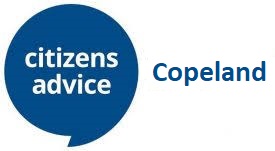Money Confidence
Select advice topic

What is an ISA?
ISA stands for Individual savings account and ISAs, allow you to save tax-free into a cash savings or investment account. Each tax year, you are given a specific limit (called your ISA allowance) of how much money you can save without paying tax on your savings. Tax years run from 6 April to 5 April the following year when your allowance will refresh.
Types of ISA
ISA name | How you can use your ISA | Key information |
Cash ISA | Cash ISA | £20,000 allowance. Tax-free interest on your savings |
Stocks and shares ISA | Investment account | £20,000 allowance. Investments can go up or down in value. Tax-free gains and dividends. Tax-free interest. |
Lifetime cash ISA | Savings account for a home deposit or retirement | £4,000 allowance with 25% of your savings topped up by the government. Only available to people aged 18-39. Tax-free interest. |
Lifetime stocks and shares ISA | Investment account for a home deposit or retirement | £4,000 allowance with 25% of your savings topped up by the government. Investments can go up or down in value. Tax-free gains and dividends. Tax-free interest. |
Innovative finance ISA | An ISA that contains peer-2-peer loans | £20,000 allowance. A higher-risk investment ISA that includes peer-to-peer loans instead of cash, or stocks and shares. Tax-free interest. |
How does the ISA allowance work?
Every tax year you can put money into one of each kind of ISA that you are eligible to open up to your allowance.
How you can use your allowance:
- You can use your allowance in full with one ISA type
- You can split your ISA allowance into chunks and use it on different types of ISA, check which are suitable for you
- With a lifetime ISA, you can only pay a maximum of £4,000 each year

How do you open an ISA?
- Lots of banks, building societies and credit unions offer ISA accounts
- You can open one in a branch, online, by post or over the phone, depending on the ISA you choose
- You will usually need to put some money into your ISA account to start it and this can vary depending on the type of account and the provider
- You will be provided with an ISA declaration to read and sign so you must read this carefully as it highlights the ISA allowance, the rules and penalties
Withdrawing money
You can usually withdraw money from an Individual Savings Account (ISA) without paying tax although restrictions may apply. There are different rules for taking your money out of a Lifetime ISA so consult your provider before you do so.
If your ISA is flexible, so long as you take cash out and put the same back in again in the same tax year, you won’t reduce your annual allowance.
Further help and information
Gov.uk – www.gov.uk/individual-savings-accounts
Which? – https://www.which.co.uk/money/savings-and-isas

